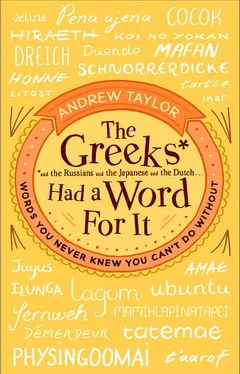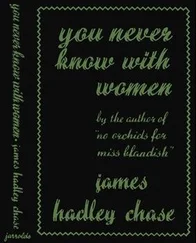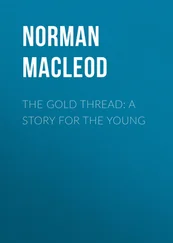Today, soutpiel has been softened into the almost affectionate ‘ soutie ’ ( SOHT-y ), and in town if not in the rural Afrikaaner heartland, English-speaking South Africans may even sometimes use it to describe themselves.
Other former colonial nations have coined their own less-than-respectful names for the citizens of the mother country. The Americans have limey , a contemptuous reference to the lime juice that would be added to the Royal Navy’s rum ration during the nineteenth century – a sneer that rather backfired, as the vitamin C in the lime juice did at least keep the sailors free from scurvy and the oozing wounds, loose teeth, jaundice, fever and death to which it led.
In Australia, no one really knows where the term Pom comes from, though there have been several unconvincing explanations such as Pomegranate , describing the colour that the fair-skinned English went in the sun, or P.O.H.M.S., short for Prisoner of Her Majesty’s Service. The Scots have Sassenach , which means Saxon, not necessarily affectionately, and shows what long memories the Celts have.
But nothing matches the scorn and derision of that vivid Afrikaaner image of the Englishman stretching desperately to keep a foot in both countries, with his pride and joy dangling disconsolately in the chilly waters of the South Atlantic.
A sense of the fragility of life
You might, on a walk in late summer, see a leaf gently float down to the ground from a high branch. Perhaps you may come downstairs one morning to see that the vase of flowers that last night looked so fresh and full of life has begun to lose its petals. Or you might watch the reds and golds of a beautiful sunset gradually fade away as the sun sinks in the sky.
Any of those experiences might bring you a feeling that the Japanese would call aware ( ah-WAH-reh ) – a deep sense of beauty, coloured by the realization that what you are looking at is fragile and fleeting. It is this sense of the impermanence of beauty that lies at the heart of aware .
For the Japanese, it is often expressed in the aesthetic concept of mono no aware , which translates roughly as ‘the pathos of things’. Nearly seven hundred years ago in Tsurezuregusa , or Essays in Idleness , the Japanese poet and hermit Yoshida Kenkō observed that if people lived for ever, then material things would lose their power to move us. ‘The most precious thing in life is its uncertainty,’ he said. [6] Tsurezuregusa or Essays in Idleness , tr. Donald Keene (New York: Columbia University Press, 1998).
For the Japanese, one very common expression of aware is in the contemplation of the cherry blossom, which usually lasts only a few days before it begins to fall. In the parks and gardens of Tokyo, silent groups will gather in early April just to look at the array of blossom on the trees as the flowers slowly wilt and die. Coincidentally – and showing that emotions are universal, even though English may lack the precise words to express them – back in late nineteenth-century England, the shy, buttoned-up poet A. E. Housman also chose the cherry blossom to express his own sense of the fragility of beauty and of human life.
In the poem ‘Loveliest of Trees’, at the age of twenty, with only fifty years remaining of his allotted span, he says:
And since to look at things in bloom
Fifty springs are little room,
About the woodland I will go
To see the cherry hung with snow. [7] A. E. Housman, A Shropshire Lad (1896) in A Shropshire Lad and Other Poems , ed. Nick Laird (London: Penguin Classics, 2010).
The spring blossom has turned in his mind to the snow of winter – a chilly symbol of mortality. The mixture of appreciation, thoughtfulness and regret comes close to the heart of the meaning of aware .
The cycle of the seasons, with growth, maturity and death exhibited in falling petals and dying leaves, is the traditional way to demonstrate aware , but it applies throughout life. A glimpse of a faded photograph on an old woman’s mantelpiece showing her as a young bride; the dry, curled pages of a precious childhood book; a crisp, shrivelled leaf about to crumble away into nothingness – all these could inspire the same wistful sense of inescapable mortality.
There is sadness, but it is a calm, resigned sadness, and it is coupled with a humble acceptance of the beauty of existence. Perhaps the whole concept might seem maudlin at first glance, except that the concentration is not on death and the end of everything but on the fact of its existence. It is a bittersweet emotion but essentially a positive and life-affirming one.
A perfect fit
Speakers of English, it seems, would like to be seen as a tolerant, non-judgemental, open-minded lot. We have the phrases and proverbs to prove it: ‘One man’s meat is another man’s poison’, ‘Each to his own’, ‘You pays your money and you takes your choice’. We are not going to be dogmatic about what is best or worst, we are saying: people have their own preferences, and we respect them.
But if the non-judgemental self-image were true – if we really were so unwilling to lay down the law and tell other people what they should think – surely we would have a single word to express the idea, rather than having to rely on a few hackneyed clichés? A word we could use, for example, if someone asked us if we knew a good restaurant, or if a book was worth reading, or whether a particular model of car was any good.
As it is, we can say the restaurant, the book or the car are good, or bad, or somewhere in between, and we may think we’re being helpful. But the truth is that you may hate the sort of food that someone else enjoyed in the restaurant, you may be bored by the book that they found fascinating, and you may find the car that they drive and love a bit uncomfortable and old-fashioned. We each have our preferences.
What we need is a word like the Javanese cocok (cho-CHOCH , with the final ch pronounced as in the Scottish loch ).
An inadequate translation into English might be ‘suitable’, although cocok can be either an adjective or a verb: a thing can be cocok or it can cocok . I could say that the restaurant, or the book, or the car would be cocok for you – that you would like them. But that is only scratching the surface of this fascinating and beautiful word. One leading anthropologist has suggested that cocok means to fit like a key in a lock, or to be exactly right, like the medicine that cures a disease. Javanese villagers might say that their greatest ambition for their children is that they should find a job which is cocok . If two people agree in such a way that the view of each one not only supports the other but brings to it subtleties and nuances that the other person had not thought of, then their opinions will be cocok .
In its purest sense, the word means that two things fit together so perfectly that each one gains meaning and value from the other: together, they are greater than the sum of their parts. It has its philosophical roots in Kejawen, a Javanese synthesis of Islam, Hinduism, Buddhism and animism, which sees the whole of creation as an intricate fitting together of its disparate parts – everything visible and invisible, past, present and future. That is the aim both of the individual soul and of creation itself; everything that is cocok is part of a greater, eternal metaphysical harmony.
If that sounds a rather grandiose way to express a preference for one restaurant over another, a liking for a particular book, or the choice of one car above all others, then that’s probably because you haven’t bought into the concept. The Javanese themselves might use cocok to describe their food, their clothing, or even their government. And, after all, however good a restaurant meal may be, left alone it will simply congeal and go mouldy; eaten, it will become part of you, while you will have a satisfied, fulfilled feeling of well-being and grow strong and healthy.
Читать дальше












